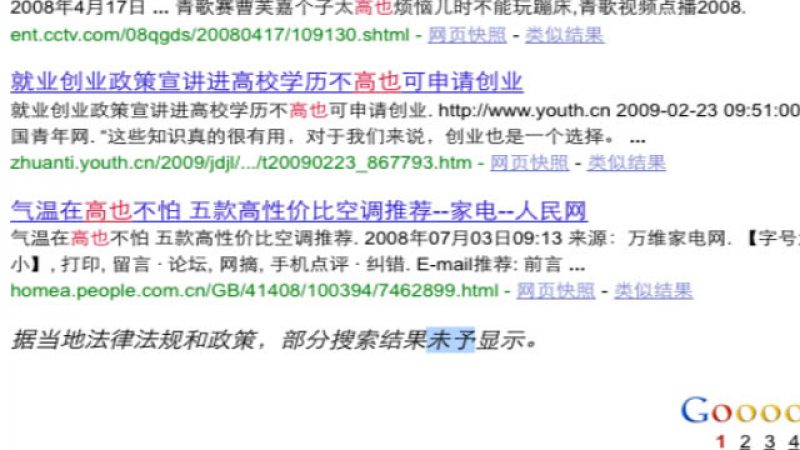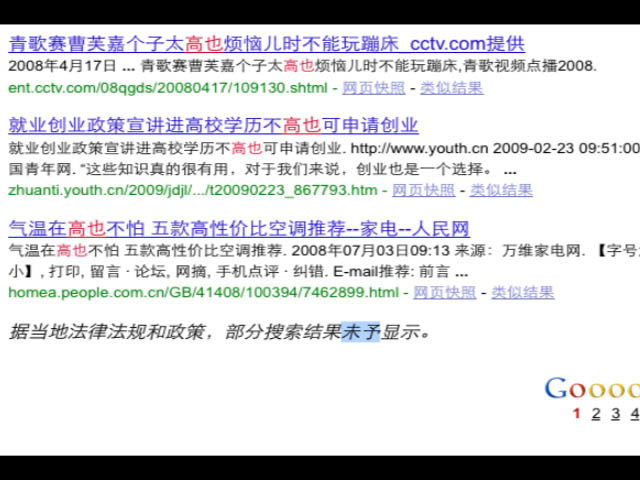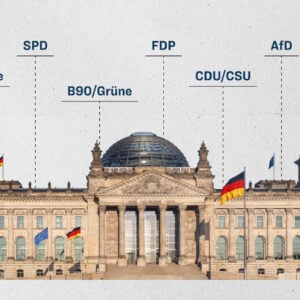
Chinese State Media Forging Evidence to Denounce Google?

In recent weeks, there have been signs of a rise in Internet censorship in China, including the controversial Green Dam filtering software.
And now, China’s state-run media appear to be launching a campaign against Google. But some of their claims have been questioned.
Last week, a program on state-run CCTV claimed that Google’s „suggest“ function, which suggests phrases involving the searched term, exposes people to pornography.
On CCTV, a televised Google search for the word „son“ was showing to „suggest“ an incest-related phrase.
Search terms are recommended based on their popularity. But, according to the New York Times, the phrase shown on CCTV had not been a popular search term until just days before the program aired.
Data showed a sudden spike of searches for that phrase in Beijing, which may have increased the likelihood that the phrase would appear on the show.
As part of the same program, CCTV interviewed a university student who complained that Google’s content was harmful.
Chinese netizens later found that the university student was actually a CCTV intern, and a backlash grew against the state broadcaster.
And, in a strange twist, the intern has himself become a censored term. A Google search for this intern’s name says, „In accordance with local laws and regulations, your search results cannot be displayed.“
 (NTDTV)
(NTDTV)



![[Live] Magdeburg: Pressekonferenz mit Polizei und Staatsanwaltschaft](https://images-de.epochtimes.de/uploads/2024/12/THUMB-PK-Magdeburg-400x225.jpg)























vielen Dank, dass Sie unseren Kommentar-Bereich nutzen.
Bitte verzichten Sie auf Unterstellungen, Schimpfworte, aggressive Formulierungen und Werbe-Links. Solche Kommentare werden wir nicht veröffentlichen. Dies umfasst ebenso abschweifende Kommentare, die keinen konkreten Bezug zum jeweiligen Artikel haben. Viele Kommentare waren bisher schon anregend und auf die Themen bezogen. Wir bitten Sie um eine Qualität, die den Artikeln entspricht, so haben wir alle etwas davon.
Da wir die Verantwortung für jeden veröffentlichten Kommentar tragen, geben wir Kommentare erst nach einer Prüfung frei. Je nach Aufkommen kann es deswegen zu zeitlichen Verzögerungen kommen.
Ihre Epoch Times - Redaktion